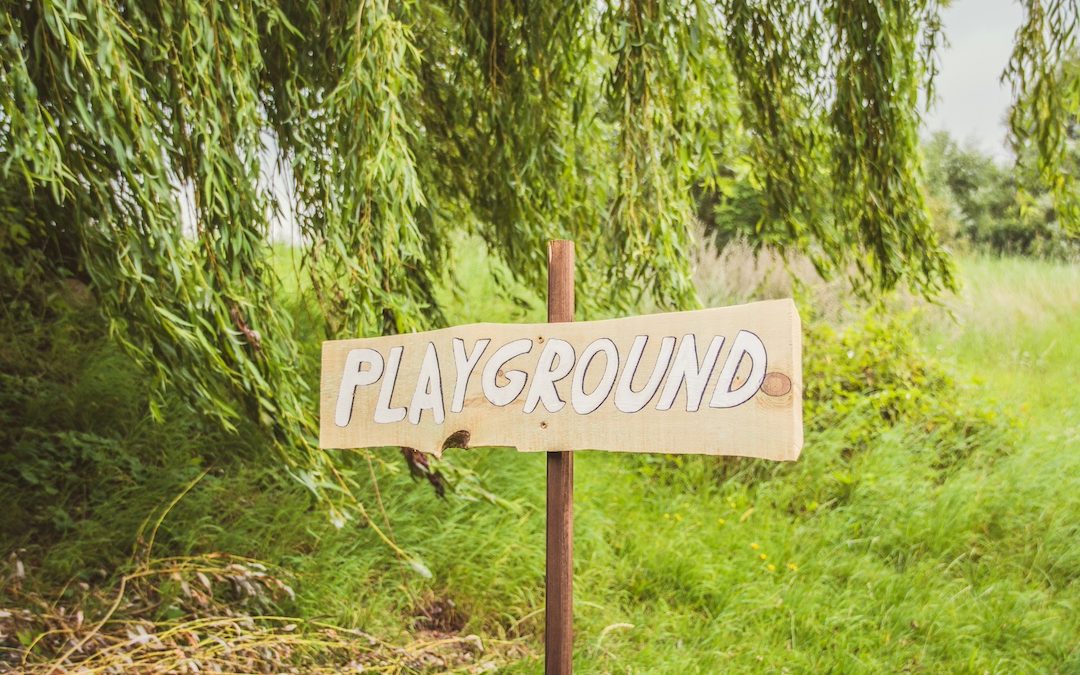
by Rachel Toalson | Books
Here are 6 things worth sharing this month:
1. Reading (YA): I just finished Joy McCullough’s latest YA book, Enter the Body, which was a retelling-ish story that featured the females of Shakespeare’s most iconic tragedies. Written in verse and also at points scripted like a play, this book was not only a fast read but a fascinating one. Who doesn’t want to hear from the females who were abused, mistreated, and always seemed to die one way or another in Shakespeare’s tragedies? (Full disclaimer: I studied Shakespeare in college and have enough credits to be a Shakespeare professor and, for about a year, entertained the idea of becoming one. So she had me at Shakespeare.) McCullough is also the author of We Are the Ashes, We Are the Fire (not in verse), and Blood Water Paint (another verse novel) as well as books for middle graders.
2. Reading (Adult NF): “It’s about moving through the world with curiosity about what will happen next, instead of a demand that it turn out according to your plans.” Oooh, this was a hard read for me. Four Thousand Weeks: Time Management for Mortals, by Oliver Burkeman, is a book about using what time we have on this earth realistically, rather than more efficiently. It’s a philosophical book about time, with some great pointers for how to come to terms with the limited time we have. I loved it and hated it and loved it. I ended on loving it. But will probably have to read it again the next time I think, “No, I think I can get all of this done.” Very highly recommended. Burkeman is also the author of The Antidote: Happiness for People Who Can’t Stand Positive Thinking, which I haven’t read, but because I loved Burkeman’s style, I’ve now added it to my TBR.
3. Reading (Adult NF): An important, fascinating, completely engrossing read: that’s how I’d describe The Six: The Untold Story of America’s First Women Astronauts, by Loren Grush. This book tells the story of the six elite women who were chosen in 1978 to become NASA’s first female astronauts: Sally Ride, Judy Resnik, Anna Fisher, Kathy Sullivan, Shannon Lucid, and Rhea Seddon. I thoroughly enjoyed reading about their lives, how they came into science, and the advances in space travel during those important decades. (A personal tidbit: when I was a senior in high school, eight students from my school were chosen to go through an abbreviated astronaut training at NASA Space Center Houston. I got to fly on the vomit comet (a training jet) and fly the rover my team built in zero G simulation. I’m currently trying to write a graphic memoir about this experience. This book was like nerding out on all things space.)
4. Watching: Something you may not know about me is that I am a sucker for anything that is based on a true story. So when I saw The New Look, an Apple TV series based on how French fashion icons Christian Dior, Coco Chanel, Pierre Balmain, and Cristóbal Balenciaga survived World War II and navigated the aftermath by launching what’s considered to be modern fashion, I had to watch it. And it is FANTASTIC. So beautifully filmed with stellar acting. And have I mentioned Apple TV’s intros for their shows? They’re so creative! You’ll want to check this one out if you love true stories, too.
5. Reading (YA): I’ve been all about the young adult reads this month, and another fantastic one to add to your list is Forget Me Not, by Alyson Derrick. Oh my goodness. So many tears in this one. I was reading it in the car on the way to a family fun day at a museum here in San Antonio and my kids noticed my tears and said, “Why are you crying?” And I said, “Because it’s just so beautiful.” Don’t you just love books that make you feel that way? Well, this one will. Forget Me Not, was longlisted for the 2023 National Book Award. Derrick is also the co-author of the book, She Gets the Girl, which I have not read.
6. Reading (Adult F): I loved A Grandmother Begins the Story, by Michelle Porter. It’s about four generations of Native (Métis) women, as well as other characters (including a buffalo…you’ll have to read it to understand) , and how they navigate their lives outside of each other. It had all kinds of lore and the feel of old storytelling, which is what I enjoyed so much about it. The book has gotten mixed reviews, but for what it’s worth, I really enjoyed it. And the cover! So lovely!

by Rachel Toalson | Wing Chair Musings
Battles are not my favorite.
My first teenager fought his father and me about every little tiny thing; he had an endless energy to fight, it seemed, and it wore my husband and me down.
Fortunately, the next teenager who came along was a laid-back, delightful kid. We regrouped.
I have another new teenager in my house (yes, if you’re keeping track, that’s three teenagers in my house). He is quiet, respectful, content to fade into the background, so long as he has his friends, a soccer ball, and Pokémon Go.
And then there are two preteens who are as challenging as the first child was. They LOVE to fight. It is so much fun to argue about everything! Can you go a day without fighting? I say to them regularly. No, they answer at the exact same time. (They’re identical twins. They have twin powers.)
Every day, it seems, there’s some kind of battle. I’m tired. We’re all tired. No one wins when they come out swinging all the time.
In the larger sense, life, too, can feel like a series of battles. Conflict layers upon conflict, which layers upon conflict, which layers upon…on and on it goes. From the time we’re young life lays out a series of gauntlets. Challenges for us to overcome. Difficult people love. An identity to try to hold onto when things get dicey.
There are so many places where fighting exists, people and the world throwing out challenges like they’re nothing. What do you think about this—and this—and this this this this this?
If all we ever do is fight, what kind of a life is that? An exhausting one.
I’ve been kickboxing for several years. Kickboxing teaches you how to fight. You use strategic kicks and punches. But you also learn how to duck and block—which is just as important in the art of fighting. Sometimes a fight is about outlasting your opponent, sometimes it’s about the element of surprise, sometimes it’s simply about dodging and blocking and being patient. Waiting for the right time to come out swinging. It’s important to learn how to fight smarter.
What does it mean to fight smarter, though?
Well, for one, we have to choose our battles. We can’t fight every one. We have to trust that other people are fighting, too.
I have a few more suggestions for fighting smarter below.
I suppose what I really want to say in this somewhat meandering examination is that our lives are a grand story. The conflict, the fighting for what we want and need, is what makes for a good life story.
It’s not easy to remember in the midst of conflict or challenge, those places where we have to fight hard to get through, that these are the defining moments of our lives, or that our overcoming will make a good life story. It’s not much of a comfort when we’re going through it (though sometimes it can be).
But it’s a way of turning our attitudes and beliefs around, which we talked about in the last newsletter.
What if we saw the conflicts in our lives as opportunities to grow? Just like a character in a story, we don’t become who we truly are and were made to be until we fight for something. Until we learn what we’re willing to fight for.
And becoming is circular, isn’t it? So we also learn more about what we want and need to fight for the more we become who we are. We peel off all the layers covering our true selves and unfold more into who we are as we fight for what matters.
(A note here: Of course we don’t pick fights about things that don’t matter. That’s not what I’m saying at all. How exhausting that is! We fight for what does matter. And each of us has to decide what that is for us. Love. Worth. Dignity. Equality. Belief in myself. A place at the table. A place for everyone at the table. Those are some of the things that matter to me.)
I want to fight fierce for the things that matter. But what does fierce mean? Sometimes it means speaking up, sometimes it means staying silent. Sometimes it means speaking our minds to a whole big wide world, and sometimes it means gathering the right people around us—or joining the right people—so they can speak to the big whole wide world. My fierce may look different than your fierce.
When I was at the Texas Library Association, a group of authors, librarians and attorneys met to discuss what was happening with book bans in Texas. There are some amazing people in this group doing amazing things to fight against book bans. They are becoming more of who they are. They are becoming alive.
That’s what happens when we fight for the things that matter.
Here are some things I like to remember when I’m fighting:
1. We can’t fight for everything.
We have to find our corner. There’s so much in the world we want to change—that needs to change—but we can’t do it all. We have to choose our battles and trust that other people are fighting for what matters, too.
And just because we’re fighting for one thing doesn’t mean we don’t care about the other things. We’re just picking our corner—because when we fight for too many things we’re stretched too thin and can’t be effective at any of them.
2. We have to take care of ourselves.
Fighting is hard work and takes a lot of energy. Just like I can’t train in kickboxing every day without injuring myself—I need at least one recovery day on the calendar—we can’t fight every day of our lives without recovery days. So take time away and make sure you’re caring for yourself.
3. Sometimes fighting is quiet.
We’re not all cut out to be loud. We fight in our own ways. We can fight with our pen, in the privacy of our room, as much as we can fight out in the world. Anonymous still has a powerful voice.

by Rachel Toalson | This Writer Life
The first book I wrote I didn’t brainstorm. I flew by the seat of my pants. The second book was the same. Both took months of revision to get them in submission shape.
After those first two books I created a brainstorm document for myself. I thought I could use it for every book thereafter. My secret formula for writing a book.
I tried using the brainstorm document on the next book. Nothing worked. I felt completely helpless. I thought, How do you write a book?
That question creeps in every book I begin, no matter how many books I’ve written.
Maybe that’s discouraging to hear from someone who’s written more than 40 books. I don’t mean it to be. I think it’s actually kind of exciting. There’s this interesting thing called the knowledge gap that says the more we know and learn, the more we realize we need to know and learn. This keeps our minds open to new possibilities.
So when we’re faced with the question, Uhhh….how do you write a book again? our minds are primed to focus on developing our craft and making it easier for us. Making storytelling something intuitive instead of something we have to consciously think about endlessly.
Continuous learning is what brings us into expert territory. When we realize we don’t know what we’re doing, we approach each book as though it’s all brand new. Our books don’t become formulaic because most of the time we can’t use the exact same method of brainstorming and writing and revising for every single book.
I take some of the pieces from that brainstorm document I created and use them here and there, but every book is different. That’s what makes writing exciting. It’s also what keeps us pushing to learn more about our craft.
None of us really knows what we’re doing—and that can be liberating. Because we all have room for improvement. And that means we can really engage with our stories, instead of going through the motions and becoming, for lack of a better word, robotic at it.
When we’re learning something new, or learning more about it, we play closer attention to it. When we think we already know everything we need to know, our minds close up tight against new ideas that challenge what we think we know.
Creativity is best expressed through an open mind.
So when we face that blank page and we have no idea where to begin, we don’t have to feel stuck or get down on ourselves for not knowing exactly what to do next. It’s all a part of the grand process. Author Sue Grafton keeps journals for books she’s written. And whenever she starts a new book, she says she can always peek back at those journals and “discover I was just as confused and befuddled back then as I am today. Prior journals are reminders that regardless of past struggles, I did somehow manage to prevail.”
Here’s how to embrace the reality that every book is different:
1. Let the story lead.
Even when writing a series I have a slightly different method for each book (it’s worth noting that the differences aren’t always drastic). I thought I’d start my recent middle grade horror story (book 4 of the series) with the ghosts and flesh out their backstory before beginning on the plot. That wasn’t what the story wanted. So I jotted down some plot points, then dove deeper into the characters and ghosts.
I like to know the tone of a story and the voice of a character before I start writing. But in a recent story draft (another middle grade), I’ve just been clearing my throat. I know I’ll need to go back and probably cut several chapters from the beginning, but it’s what the story needed at the time. I followed its lead.
And that’s what a first draft is for: discovering the story. Sometimes it takes a while to find our way.
Some stories want extensive brainstorms. Some want to be told in a linear way. Some want us to focus all our energies on a particular cast of characters before we do anything else. Some don’t ask for any of that.
Don’t miss out on what the story has to tell you, however confounding and out of your comfort zone it may be.
2. Embrace the not-knowing.
I’m one of those people who hates not knowing anything—so this point is especially hard for me.
The truth is, most of us intuitively know how to tell a good story. We’ve been doing it since we were young. We might not get it right on the first try—but no one really does.
Not knowing how to do something makes us uncomfortable. It also makes us more willing to consider new ways to write and encourages us to learn more about storytelling and craft. If we embrace the unknown, we leave our minds open instead of closed. Creativity can have a field day with an open mind.
3. Remember that when we’re challenged we grow.
If writing were easy all the time, if we constantly knew what we were doing, it would not only get pretty boring but we would also cease to grow. We might stagnate. Our creativity and stories might stagnate.
No one wants to tell or read the same story over and over and over again. Formulas get boring for writers and readers.
Challenges can be frustrating and hard—but we become better writers—and people—by working our way through them.
Never stop growing. Keep embracing the mystery. Know what you don’t know and use it to your advantage.
I hope you have a stupendous month of creativity and joy.

by Rachel Toalson | Books
Here are five things worth sharing this month:
1. Reading (MG): I’ve been a fan of Sally J. Pla’s for a while, so when I saw she had a new book, I couldn’t wait to pick it up. The Fire, the Water, and Maudie McGinn is a sweet story about a girl on the autism spectrum who’s been displaced because of a California fire. It’s a difficult story, but it’ll leave you feeling a lot of hope—one of the things I love most about middle grade literature. Pla is also the author of one of my favorite books, The Someday Birds, which I also highly recommend.
2. Reading (Adult NF): “If people had more understanding of geologic time, we’d be less selfish and greedy, and think about the future.” I love Sy Montgomery. Her newest book, Of Time and Turtles: Mending the World, Shell by Shattered Shell, is as brilliant as the first book of hers I read (The Soul of an Octopus: A Surprising Exploration Into the Wonder of Consciousness, which was a National Book Award finalist). This one’s about turtles and time and the environment and shrinking habitats and COVID and what we can do about it all. It was brilliant.
3. Watching: You’re gonna have to excuse me for a second, but I have to gush about a new Apple TV series, The Buccaneers. Have you seen this show?! It’s SO GOOD! They’ve only released the first season (and watch out—it ends on some cliffhangers), but I’ve found myself thinking about the characters frequently, after having finished all the episodes. That’s how I know it’s a good show—I’m invested in the characters, I care about their lives, and I want to know more. It’s a historical show that follows a cast of young women as they try to find their place in the world—or make it. I’ve written down so many quotes from the young women; here’s one of my favorites, from Nan St. George: “I will not be a caged bird. I will fly free.”
4. Reading (YA): I recently finished the young adult book, An Appetite for Miracles, by Laekan Zea Kemp, a novel in verse about family and dementia and memory and first love and hope. Kemp wrote not only a beautiful story but beautiful poetry. This is the first of Kemp’s books I’ve read—but it will not be the last!
5. Reading (MG): I am beginning to fall in love with Gary D. Schmidt’s stories. I just finished Okay for Now, which was a National Book Award finalist back in 2011, and I loved it as much as I’ve loved his other books. He has a knack for writing complex characters who don’t always make good choices—but you love them all the more for it. Other favorites of Schmidt’s include The Labors of Hercules Beal, The Wednesday Wars, and Just Like That.

by Rachel Toalson | Wing Chair Musings
I have always been a person of action.
It’s good to sit around and dream and talk about what we want to do. My husband and I have regular dream sessions, in which we dream about where we want to be in the future. We write things down and make seemingly impossible plans and grab hope with both hands because sometimes it’s what you have to do.
But what good is dreaming if we don’t act on those dreams?
We have to do something. We have to take the steps necessary to achieve our dream. We have to identify those necessary steps.
So many people tell me they want to write a book. But either they never get started or they abandon it before it’s done. They’re in good company. Some experts estimate that about 97 percent of people who start a book don’t finish it. And that’s only accounting for the people who actually get started on a book in the first place.
Action is what gets the book written. We have to make a plan to do it—and then do it.
It sounds so simple, but doing the work is how a book gets written.
Lennox Lewis, an English Canadian boxer, says, “Action is what separates the dreamers from the doers.” We have to act on our dreams to make them realities.
I will admit: There are hundreds of things that get in the way, that make it hard to do the work—and many times we’ll have to choose between one good thing and another. But when something is important to us, we find the time to do it.
Getting your butt in the chair and doing the work of writing is the most important thing if you want to write a book. Here are my suggestions for how to do that:
1. Have a chair.
What I mean by that is carve out a space—both physical and metaphorical—for writing. Writers do need a space where they can be alone (or mostly alone) and create. We also need a special space in our schedule. Writing takes time—which means we have to give it time.
It helps me to use the same time every day for my writing. That predictability helps me stay consistent with my writing. But I know that doesn’t work for everyone.
Maybe it’s as much as saying, I’ll write for fifteen minutes every day, and then look for the time to do it.
Making this space in your physical space (your calendar and your home) and your mental space (your mind) signals to your brain that writing is important. And when the brain notices anything is important, it works harder at it—which is what we want.
2. Be consistent and make writing a habit.
Life happens. Habits, at least the good ones, are challenging to form. As soon as we decide we want to develop a habit, a thousand things pull our attention to exactly the opposite.
It may be challenging at first to stick with writing every day, to not get bored after the initial excitement wears off. But if we show up every day—or most days—it gets easier. You can trick yourself, too, by rewarding yourself for showing up consistently.
There are all kinds of books out there that teach about building habits. Thinking of writing as a habit can certainly be a first step toward a consistent practice. And when we reward ourselves for that consistency, the brain associates the act with pleasure. And it says, This is fun. I want to do it again!
Which is exactly what we want the brain to do.
3. Allow room for terrible writing.
Just like with any other habit, we won’t feel like writing every day.
I run every day but Sunday. And some mornings I peel myself out of bed and think, I really don’t feel like running this morning. I do it anyway. I may not enjoy it, but it’s good for me. And it gets easier once I get started.
Some runs are slogs. Some mornings I haven’t gotten enough sleep or I’m a little burned out. Some days the writing is a slog. I have other things on my mind, or I can’t focus or the writing’s just off. I remind myself not every run can be awesome, and not every writing session can be awesome.
Some days we’ll write terribly or we won’t get many words. But there’s always tomorrow. And the next day and the next.
And that’s the hope when it’s a writing habit: we’ll do it every day—and tomorrow can turn the whole thing around.
One of my writing mantras is, “You can’t revise what doesn’t exist.” So carve out space, build your writing habit, and make no judgements—yet.
Writing a terrible something is better than writing nothing.
I hope you have a marvelous month of writing.

by Rachel Toalson | Books
Here are 5 (or 6) things worth sharing this week:
1. Reading (YA): “Couples that stim together stay together.” I loved loved loved Tilly in Technicolor, by Mazey Eddings. It’s about a young woman, Tilly, who has ADHD, and a young man, Oliver, who has autism. Though they are wildly different, they fall in love. So much of it reminded me of my husband and me (except with the neurodivergence reversed) that I made my husband read it. It’ll make you laugh, swoon, and probably get a little teary-eyed now and then. Highly recommended. This is the first of Eddings’s books I’ve read, though she has other romances, including Lizzie Blake’s Best Mistake and A Brush with Love.
2. Reading (MG): I just finished Jenn Reese’s latest book, Every Bird a Prince, and wow, was it spectacular. I love Reese’s speculative fiction (she’s the author of A Game of Fox & Squirrels, which I talked about a few newsletters back). This one features Eren Evers, who is confronting her greatest fears and also helping a collection of bird royalty save the forest kingdom. I loved all the references to fear and how to have courage. It was so beautifully told. I can’t wait for her next book, Puzzleheart, which releases May 14.
3. Reading (Adult NF): “History is a merciless judge. It lays bare our tragic blunders and foolish missteps and exposes our most intimate secrets, wielding the power of hindsight like an arrogant detective who seems to know the end of the mystery from the outset.” When I first picked up Killers of the Flower Moon: The Osage Murders and the Birth of the FBI, by David Grann, I didn’t even realize it was a true story. Probably because I’d only seen the title on the Apple TV movie (which I have not yet watched), and I only picked it up because I have a deal with myself that I have to read books before I watch movies based on books. But it was so worth it. This story is fascinating and tragic and will make you burn with fury. I’m looking forward to watching the movie. Probably I’ll be watching it alone, since I’m the only person in my family who’s a sucker for movies based on true stories!
4. Watching: I just finished watching the docu-series The Super Models on Apple TV. This series follows Cindy Crawford, Linda Evangelista, Naomi Campbell, and Christy Turlington in their rise to become supermodels in the 1980s. I found it fascinating to watch about their challenges and also the ways they stomped through stereotypes of beautiful women. They are inspirational women; one of my favorite lines in the series was something Linda Evangelista says: “Youth is not sustainable. Beauty is.” I LOVED that! And now I’m gonna work on an adult story framed around that quote. 🙂
5. Reading (YA): If you’re looking for a fun, funny, heartwarming graphic novel, look no farther than Huda F Cares? by Huda Fahmy. (I mean, with a title like that, how could you not pick it up?) It was a National Book Award finalist this year, and it’s a story of Huda and her sisters and her family’s trip to Disney World. I’d pick it up just for the Disney World in it, but it was funny, heartwarming, and delightfully fun. Fahmy is also the author of Huda F Are You? As well as some graphic memoirs for adults. Check her out; you’ll be glad you did.
6. Reading (chapter books): I’m currently reading back through the Ramona series of chapter books, by Beverly Cleary, and I had forgotten how much I love Ramona (I just finished Ramona the Pest, and I’m pretty sure I was smiling through the whole thing). What a spunky little girl! Reading back through these, I can see why first-grade Rachel LOVED the Ramona books. Ramona is a girl who pushes all the limits. It’s been great fun to revisit her story and imagine what I might have been thinking as I read it all those years ago.

by Rachel Toalson | Wing Chair Musings
One of my goals for this year is to take off all the school holidays with my kids. It’s been my goal for several years, actually. But I always seem to find one reason or another not to do it.
My sons recently had a winter break, which gave them a five-day weekend. Not even a month later, they have Spring Break. And as Spring Break hurtles toward us, I find myself thinking, Maybe I can just do a few things. They just have so many days off! And I just spent three whole days with them!
There are so many days off…and there’s always so much to do.
I start with such good intentions. And then the work starts creeping into those days off. And before I know it, I’m right back where I was when I found myself thinking, These days aren’t gonna last forever. I really should enjoy them. I should take off all the holidays with the kids.
Round and round we go.
It’s very hard for me to just…do nothing. Part of it is my personality; I feel most comfortable keeping myself busy. Dividing up my time into segmented activities, even if one of those activities is rest. I write it on my calendar. It says, “Rest,” and usually has a time limit. How regimented, right?
Sometimes I think I need to learn how to chill. How does someone learn how to chill?
My kids can sit and chill out on their phones or relax watching a Netflix show or playing a video game (which is probably a little more productive than just watching something or phone scrolling) for hours. If I sit still for a few minutes, I start to feel itchy. My brain pitches a hundred other things I could be doing. And then I start thinking, I’m taking time off to hang out with my kids and they’re looking at their phones. Why am I even here?
My husband and I used to take my sons out on individual dates when they were younger. It gave us one-on-one time with each of them—precious in a house of so many. But even when we went out on dates, we had to be doing something or it didn’t feel productive.
Why am I like this?! I ask myself that many times a day.
Lollygagging is not a natural state of being for me.
Several people in my home have ADHD. Every Saturday morning we have family council meetings to talk about our schedules, issues in the family, and how each member is feeling. Do you know what meetings are like with people who have ADHD? My husband is one of them; every Sunday we have a budget meeting to go over finances. And sometimes it’s excruciating. Back when we were in a band there was so much downtime during rehearsals, when he’d chase rabbits down trails, that I started bringing a book with me so I could read in the gaps and at least make progress on my “To-be-read” shelf.
I like my time to feel productive. My time is meticulously scheduled, by choice; even days off have a bit of a routine. It’s unclear if that routine is part of my personality or a result of trauma. Routine feels like a form of control, and there’s so much of life that’s out of control.
I’d like to get better at lollygagging, though.
When my kids were young, they were really good at it. They’d waste so much time and I’d try to hurry them along. We had places to be, things to do. But I got better at it back then. They were good at teaching and challenging me.
Now things happen at the speed of light, so it feels like I have to do everything fast, right this minute, don’t waste any time. Maybe that’s also a result of getting older. You realize your time isn’t infinite. There are real consequences for what we choose to spend our time on.
My husband has been picking up music again; he asked me if I would be in a band with him again. I love music…but there’s only so much time, and I don’t know if I love it enough. So I told him maybe. If he can figure out how to practice efficiently, if I get all the details I need. It’s the same answer for the podcast he asked me to join him in starting up again.
The reality is I don’t have all the time in the world; none of us do. We can’t say yes to everything. We have to assess what we’ll trade and what we’ll give up and get really good at saying no.
That’s how we can slow down the speed of life, maybe get back to a little lollygagging…even if it makes us itchy.
The more we practice lollygagging the better at it we get.
Here are some of my favorite suggestions for slowing down the speed of life:
1. Learn to say no.
Every time I’m asked to do something I think: What will I have to give up to do this? And am I willing to give that up?
The reality is, we’ll always be giving something up, trading our time. It might be time with our kids or partner or progress on a work project or time to ourselves. But we can’t endlessly add without taking something away. I always try to keep that in mind and assess my priorities accordingly. It would be nice if we had endless time…but we don’t.
2. Embrace (or schedule downtime for) the unexpected.
The thing about a routine is it doesn’t leave much room for the unexpected. It’s good to be spontaneous; it keeps us fresh and on our toes. It can spark creativity.
Not everyone exists on a schedule. Plus: emergencies.
If you have to schedule your down time, do it. Lollygagging is good. I like time to just sit and think…or sit and do absolutely nothing. I overhear the funniest conversations when I actually take the time to do nothing.
3. Learn to lollygag.
This is the hardest part for me, as I’ve said. What is a moment if it’s not productive?
Sit. Be. Observe. Have a nothing conversation with your kids or your partner. Laugh, play a game, do some improv, do nothing that seems terribly productive. Forget about the to-do list. (I know…easier said than done. But I’ll try if you will.)
Our brains love this kind of open freedom, to just wander and turn over things.
Make no plans for a day and see how it turns out. And if you fail, try again. You’ll never really know if lollygagging works for you until you give it a good shot.

by Rachel Toalson | This Writer Life
When I visit schools to talk to elementary and middle school students, one of the most frequently asked questions I get from them is “How much money do you make?” I get some interesting variations—“Are you rich?” “Do you live in a big house?” And at the most recent visit—“What’s your net worth?”
Uh…none of your business?
I usually try to answer this “How much do you make” question diplomatically: Not as much as you think.
Readers often have an inflated idea of how much money authors make. Most of us don’t make a whole lot. There’s a popular myth about authors that says once they get a book published, they’re all set. Maybe we believe or believed that once, too.
I certainly did. At first. Before I learned the real story.
When my first book published, I thought everything would change. I wasn’t under the illusion that I’d be rich, but I thought maybe I’d start earning at least a steady income.
That was in 2018. Here we are, six years later, and I don’t make a steady income as an author—yet. It’s the yet, I think, that keeps writers going. The endless hope that something will change, this will be my year, this book will be the breakout.
Writing takes time and commitment. It’s not an easy job. Most of us who do it love it—and it’s that love for it that keeps us coming back to the blank page again and again and again. We want to do it for love. It’s our pleasure, maybe even our purpose (it certainly is mine).
And in a perfect world, we wouldn’t have to concern ourselves with money. But we don’t live in a perfect world, and we do have to concern ourselves with money. Which means, at a certain point, we need to make money at our writing, if we want this to be a feasible, long-lasting career. And for the majority of us, that won’t happen with book sales alone.
Here are some things I’ve learned along the way about writing for love and writing for money:
1. We have to treat our writing like a business.
While I would like to spend all day every day writing, there are business tasks I have to take care of for my business. Things like sending communication, creating marketing content, setting up book signings and public appearances.
Some of us might be able to hire someone to take care of those business tasks we don’t want to do. I’ve not gotten to the point of financial stability to do that—yet (there’s that word again). So I take care of them all myself. And even if someone else takes care of them for us, those business tasks remain, and we have to be aware of and delegate them.
Of course one of the most important things we can do is write the next book. But the next book won’t go anywhere if we don’t see to the business side of things.
2. There’s no reason we can’t write for both love and money.
Money isn’t bad, you know. I grew up in a spiritual tradition that taught me not to chase money, it was the root of all evil. It’s taken me decades to overcome that teaching.
Maybe as a result of that, I used to think writing just to make money was bad. But do you know what money does? It grants us the freedom to also write what we love. When we’re not constantly worried about money or how we’ll pay our bills, our minds are freed up to be creative. And more money gives us more resources with which to be generous.
I used to hate the thought of writing for money. Now I know the more books I sell, the more freedom I also have to write the books I love.
We might even surprise ourselves—the books we start out writing for money might become some of our favorite things to write. (What do I mean by writing books for money? Some genres sell much better than others—romance, for instance, or thrillers. Genres in top-selling categories can provide a good income for authors.)
3. Find other income streams.
Most of the authors I know have additional income streams. I do school visits, Webinars, ghostwriting, client work when needed. I’m a hybrid author, which means I publish traditionally and I also self-publish—because this is what I’m good at, and I need to make money at it. Self publishing allows me a wider income stream with multiple different formats—serialized stories, novels, shorts.
I also have an online store with hundreds of products. I have digital downloads and online course products and writing prompts I sell.
Our lives as writers can offer a lot to the world, and we can find all kinds of creative ways to supplement our income. And just because we have to supplement our income doesn’t mean we’re not “real” writers. Writers work hard and write and do whatever it takes to succeed at what we love.
We can do this for love. And we can do it for money, too. Both can exist at the same time.
I hope you have a glorious month of writing for love and money.

by Rachel Toalson | Books
Here are 5 (or 6) things worth sharing this week:
1. Reading (MG): I just finished Gravebooks, the sequel to Nightbooks, by J.A. White. It’s a scary story that also examines writing and all the frustrations that come along with the act of writing. The main character, Alex, is a writer of paranormal stories, and the books incorporate some o\f his stories throughout the narrative, which I LOVE. White is also the author of the Thickety series, which is a whole collection of spellbinding books.
2. Reading (Adult fiction): “It’s as though her life has shot forward while she was looking the other way, and there’s a grief in it that wrenches her soul.” Not much happens in Amazing Grace Adams, by Fran Littlewood—but that’s okay. You don’t read it for the action, you read it for the character. And Grace Adams is a character. I enjoyed this read from start to finish. So many relatable bits, and phrases that I wrote in my notebook that I’ve felt myself. Be sure to pay attention, though, the timeline jumps around a bit.
3. Reading (MG): Farther Than the Moon, by Lindsay Lackey, was a sweet read about brothers, differently abled people, and space. Houston Stewart goes to astronaut camp and has to leave behind his brother with cerebral palsy. He’s always promised his brother he’ll one day take him to space—and now he has to figure out if that’s possible…and how it might be. So very good! (Lackey is also the author of All the Impossible Things, which was great as well.)
4. Watching: If you haven’t yet watched the Breaking 2 documentary on Disney+, you must. It’s a documentary about the quest to break two hours in the marathon. There are three runners highlighted, one of them my hero, Eliud Kipchoge, who is a phenomenal runner and person. Even if you’re not a runner, you’ll be inspired.
5. Reading (YA): Helena Fox’s latest book, The Quiet and the Loud, is a lovely, emotional read. Fox’s prose reads like poetry, and the story of George, who is trying to find quiet in her loud life, is at times hilarious and tragic. I haven’t read many storytellers like Fox. Another of my favorites is her How it Feels to Float. Both of them are well worth the read.
6. Reading (Adult fiction): “How were you supposed to change—in ways both big and small—when your family was always there to remind you of exactly the person you apparently signed an ironclad contract to be?” I’ve been on a Taylor Jenkins Reid kick lately. I don’t know what it is about her books; she writes about the “rich and famous,” except they’re fictional people—but maybe based on real people? Her stories are fascinating and so relatable—even though I’ve never been rich or famous. In Malibu Rising, which I recently finished, I related to Nina, the oldest sister, who takes care of her siblings. It’s a great read. Two of my other favorites by Jenkins Reid are Daisy Jones and the Six and The Seven Husbands of Evelyn Hugo.

by Rachel Toalson | Wing Chair Musings
When my kids were young, we identified some family values and spent a few years examining them. It was a way for us to frame our family lives, a way of living with integrity. We chose values like listening well, embracing creativity, honoring all people, believing in ourselves and others, loving all people and creatures.
It’s important to me to live with integrity. So of course that was one of our values, too. But that’s a hard concept to teach kids. Integrity is not just honesty, it’s also being who we are. Living from our values.
It’s not easy to be who we are all the time. Some days we feel grumpy, some days we feel sad, some days we carry a thousand hurts.
Living with integrity, to me, means asking the best of ourselves and others. Not asking perfection, but asking the best we have to give today.
Every day is different, right? Some days I think, I’m not sure I gave it my all today. I could have done better. That’s why we can’t expect perfection.
Integrity also means carrying our values and the things that are important to us into every part of our lives—work, relationships, play. Meryl Streep says, “Integrate what you believe in every single area of your life. Take your heart to work and ask the most and best of everybody else, too.”
Take your heart to work—that’s my favorite part. Because taking our hearts to work is integrity. Carrying our hearts everywhere, living from that wellspring of light and life and love—that is being who we are. Choosing to live with integrity.
One of my personal values is honesty. I believe we shouldn’t make promises we can’t keep. Part of that springs from my experiences as a child—I had to sort through all kinds of empty promises, and sometimes I believed them. The disappointment of an unkept promise forged this value. It makes me hesitant to promise anything to my kids that I can’t absolutely deliver.
I carry that everywhere. And sometimes it causes tension in relationships, because not everyone feels the same about promises. For some, they’re no big deal. Just words. I get that. I have to adjust my expectations of other people sometimes, because not all of us share the same values. We can’t possibly—we’re different people with different backgrounds and experiences. That’s okay. We all have different things that are important to us, different things we believe.
Another value for my family is love. I believe we should treat everyone with love, regardless of who they are or what they believe or how they live. That’s one I don’t let slide—I ask the most and best of myself and everyone else around me. I carry my heart to work and to meetings with friends and gatherings with my family and out into the world. I try to love the best I can.
Of course I don’t always succeed. I’m an imperfect human—not always generous, not always kind and compassionate (at least in my thoughts…I try to be kind and compassionate in my speech and actions, or I take myself on a break).
When we carry our hearts everywhere we go and we incorporate what we believe into all areas of our lives, we shine. We live with integrity.
I hope you have a radiant month of living with integrity.
How to live with integrity—and ask the most and best of yourself and everyone else:
1. Know what you believe
We can’t bring what we believe into all areas of our lives if we don’t even know what we believe. Spend some times connecting with your beliefs. Schedule some time to sit down and assess the things that matter to you. Honesty? Listening well? Encouraging others? Generosity? Gratitude? Love?
Conversations help. Facilitate some discussions with your friends or your partner or other family members. Write down some values that stick out to you. Think, If I wanted to leave a legacy, what would it be?
2. Find places in your life to incorporate your values more intentionally.
When my family and I were discussing our values, we came up with some specific actions for each value. Things like writing each other love notes. Sharing one gratitude around the table every night. Doing one generous thing for each other or someone else every week. Specific actions help us incorporate our values into our daily lives.
Make a habit chart. Reward yourself for acting with integrity. Do it with someone else so you can share your progress.
Or journal about it. I journaled about our family value journey. Keeping a record of your values can help you adjust and refine, which means it’s more likely you’ll keep living with integrity.
3. Remember today is today.
Wait. What do I mean by that?
Doing your best work, being the best version of yourself, is living with integrity. But we won’t be able to do it all the time. Sometimes we forget who we are. But values and beliefs give us an important framework to get back to. Living with integrity is also calling it like it is—this will not be easy. We may live with integrity today but miss the mark by a long shot tomorrow. Today is today. Tomorrow is…whatever comes.
Also, we’ll grow and change. We’ll refine our values. We’ll evolve. We don’t leave room for that if we expect perfection.











